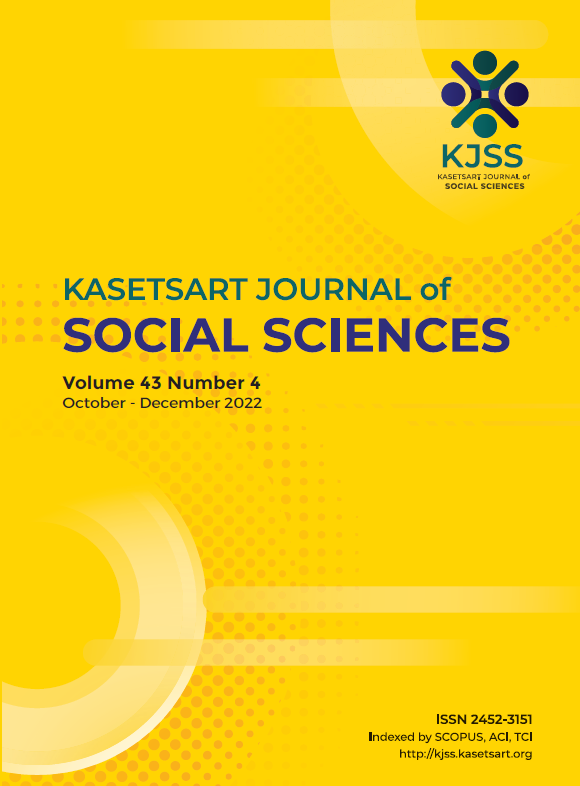Measurement scale of design thinking competency for Thai graduates’ 21st century skills
คำสำคัญ:
21st century skills, design thinking competency, measurement model, scale development, Thai Graduatesบทคัดย่อ
Design thinking has been applied in learning and work processes in order to comprehensively solve emerging problems and to create innovations to serve the needs of users. The aims of the study were to develop and validate a measurement scale of design thinking competency of Thai graduates. The mixed-method design employed in this study can be divided into qualitative research using the in-depth interviews and quantitative method to collect data from 623 Thai undergraduates. The qualitative data were analyzed using the content analysis method and quantitative data were analyzed using the confirmatory factor analysis in order to ensure structural measurement model. The results showed that design thinking competency has three main components: knowledge domain of three indicators; thinking ability domain of three indicators; and skill domain of two indicators. Finally, the results will provide the instrument and information for developing the essential skills of undergraduate students in the 21st century.
ดาวน์โหลด
เผยแพร่แล้ว
รูปแบบการอ้างอิง
ฉบับ
ประเภทบทความ
สัญญาอนุญาต

อนุญาตภายใต้เงื่อนไข Creative Commons Attribution-NonCommercial-NoDerivatives 4.0 International License.
This is an open access article under the CC BY-NC-ND license http://creativecommons.org/licenses/by-nc-nd/4.0/










